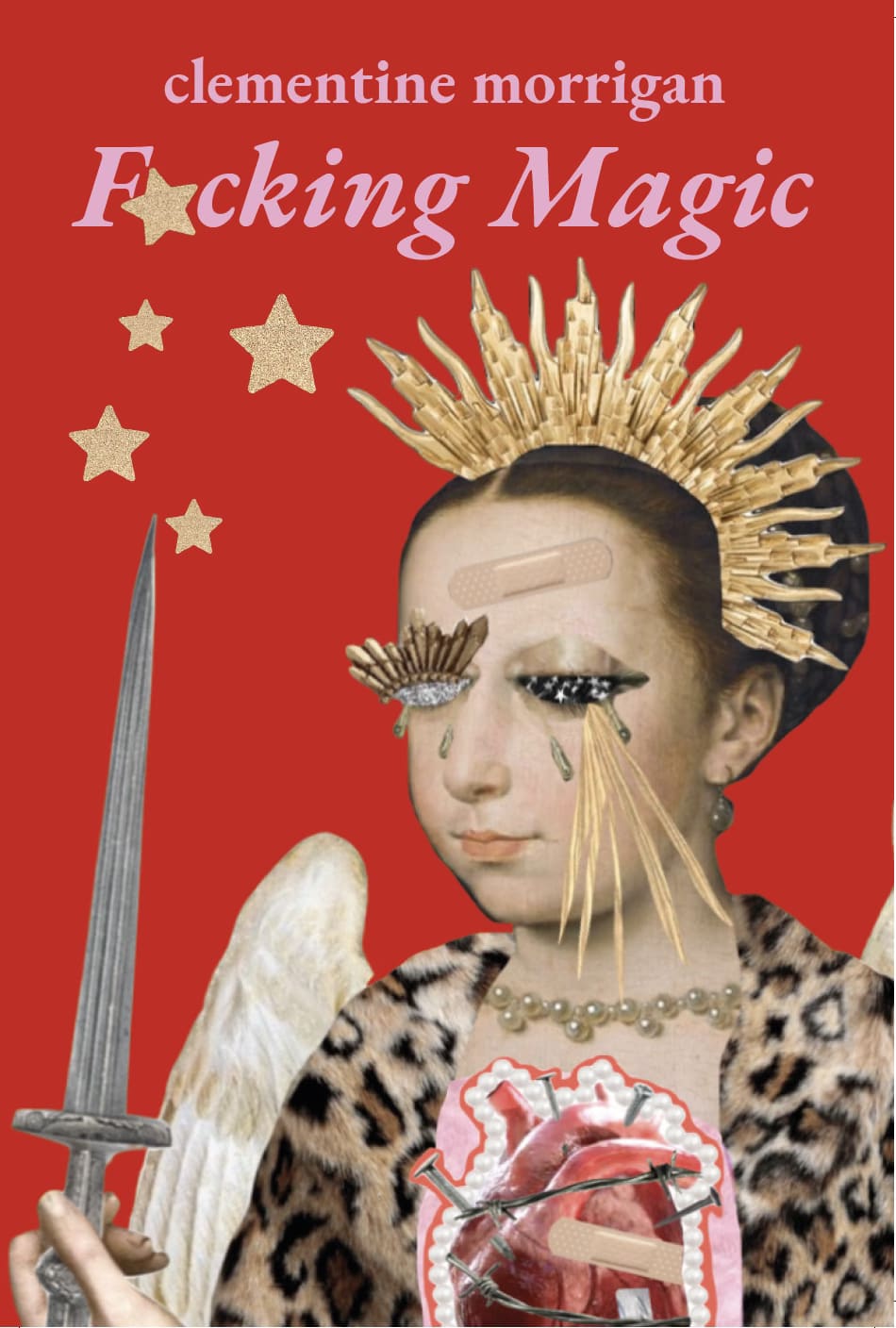We need a feminism for daughters
On the role of mothers in incestuous patriarchal families
Patriarchy means the rule of the father. Hidden in plain sight in the word patriarchy is the reality that patriarchy is not only the rule of men over women, but also the rule of fathers over children. The girl child, the daughter, in the patriarchal family is thus doubly oppressed: she is oppressed because she is female and she is oppressed because she is a child. These two oppressions are lived together and thoroughly entwined. She is oppressed specifically as a daughter.
There is no word for the specificity of this experience. The fact that women and girls are both oppressed under patriarchy, that wives/mothers and daughters are both oppressed under patriarchy, obscures the crucial difference that the wife/mother is an adult, and the daughter is a child. This means not only that the daughter is doubly oppressed and experiences oppression in the family that the wife/mother does not (anymore), but also that the mother has power over the daughter. Under patriarchy, when wives/mothers are subjected to various forms of domination, the relationship with the children, and especially with the daughters, is a place where wives/mothers can feel the reversal of the power dynamic and act as the dominator rather than the dominated. Children, and especially daughters, are socially acceptable targets for domination from all other members of the family.
In many contexts today, traditional patriarchy has been greatly eroded and women have far more power than they used to have. Women who have their own bank accounts, education, and careers, and who enjoy control over their reproduction, have far more power under patriarchy than women who didn’t or don’t. We have a tendency to imagine that women remain oppressed by men in continuous and unchanging ways but this isn’t true. How intense the domination of patriarchy is for women depends significantly on how empowered the woman is: how much legal protection, autonomy, and agency she enjoys. Children have almost no legal protection, very little autonomy, and the amount of agency they enjoy is entirely up to the discretion of their parents. Children are, very literally, held captive in their homes, and do not have the ability to protect themselves or remove themselves from the domination of patriarchy.
Under patriarchy, women’s “value” as an object of sexual desire decreases as she ages. Because of this, some older women believe that younger women have more power than them. They confuse sexual objectification with power. They iternalize patriarchy and believe that to be objectified by men is to have some power in a patriarchal context. This is not true: objectification is a profound form of domination and dehumanization that is often expressed through sexual violence of various kinds. Because some older women see younger women as “threats” to their own access to objectifying male desire and attention, they can begin to treat younger women as their enemies. This can happen within the patriarchal family in both overt and covert ways, in which the mother begins to treat the daughter as sexual competition. This dynamic is incestuous and abusive to the daughter.
In families where the wife/mother has managed to gain a great deal of power for herself through education, travel, career, and independent financial security, she has managed to escape some of the most severe forms of patriarchal domination. She has a life of her own. She may come and go as she pleases. She has an expression of her personhood outside the role of wife or mother. She may even avoid the sexual violence that is a standard part of patriarchal domination. However, the patriarch demands an object to dominate. In order for the patriarchal family to continue to function with an empowered wife/mother, the daughter is offered up as a child sacrifice. The daughter must bear the brunt of patriarchy. The daughter is expected to fulfill the role of submission, including sexual submission, that the wife/mother has managed to escape.
In many families, the wife/mother plays an active role in this dynamic. Because patriarchy has historically, and in many contexts currently, brutally oppressed the wife/mother, we tend to imagine women solely as victims within the patriarchal family, rather than as perpetrators. But in many contexts today, the wife/mother has a great deal of personal power and has a vested interest in ensuring that her patriarchal husband has an object of domination other than herself. If the mother protected the daughter and insisted that neither her nor the daughter would be an object of domination, the patriarchal family could no longer function. This would likely lead to increased violence on the part of the patriarch, resulting in either submission on the part of the wife/mother, or in separation/divorce, something that is a legally protected right and real possibility for many women today. Women could choose to leave their patriarchal husbands instead of offering up their daughters as a sacrifice. Doing so, however, would mean a decrease in their own personal freedom. Being a single mother is simply more difficult than being a partnered mother. For the empowered, career oriented woman, being a single mother would mean less financial and personal freedom, less ability to travel without the children, less time to focus on her career. The decision to offer up the daughter as an object of domination, is, for many mothers, a selfish one. It is not a decision borne of desperation and powerlessness, but of the prioritization of their own desires over their daughter’s bodily, emotional, and spiritual safety.
In incestuous patriarchal families this sacrifice and domination of the daughters is expressed literally in the patriarch having protected sexual access to his daughters. Mothers who are not under duress and have the means to leave such families but do not, are actively partaking in the incest dynamic. Mothers who are empowered and successful in their personal lives and careers who allow their daughters to be sexually abused by their husbands (or their fathers, or husbands’ fathers) are actively offering up their daughters as objects of sexual patriarchal domination in lieu of themselves. This is not done to escape their own patriarchal domination: they have the means to escape their own patriarchal domination by leaving their husbands. Instead, this is done because they want to protect their own desires, freedoms, interests, and careers. They do not want to become single mothers. And often — this is done because they want to maintain a sexual/romantic relationship to the patriarch. They actually enjoy that relationship and don’t want to lose it. Yet the patriarch demands an object of domination, and the mother joins in and offers up the daughter.
Mothers take part in the patriarchal incest dynamic in many ways. The first is simply by allowing it. They see the incest and choose not to see it. They see the signs of distress in their daughters and they dismiss those signs of distress. They witness acts of sexual abuse and choose not to protect their daughters. They also take part by encouraging their daughters’ submission. They may join in with the patriarch in disciplining the daughters for resisting the sexual abuse and by demanding that the daughter treat the patriarch with respect. They take part in the brainwashing of their daughters by distorting reality — telling the daughters that the sexually abusive behaviour is normal or harmless, that it is the daughters’ reaction to the abuse that is a problem. They will consistently minimize and dismiss the abuse. They will focus on their own desire to see themselves as “good mothers” and protect their own self image at the expense of their daughters’ safety. They may treat their daughters as sexual competition and blame their daughters for the sexual abuse of the patriarch. They may psychiatrize their daughters and treat their daughters as crazy for talking about the abuse or showing signs of having been abused. They take an active part in the repression of their daughters’ speech and this repression often carries well into the daughters’ adulthood.
My mother, Andrea O’Reilly, is well known for the creation of matricentric feminism: a feminism for and about mothers. She has written about the importance of resisting daughter-centricity and insists that empowerment for the mother and daughter alike will be found by focusing on the needs and desires of the mother. Her analysis completely ignores the double oppression of daughterhood: daughters are oppressed under patriarchy both because they are female and because they are children. Her analysis also ignores the reality that mothers have more power than daughters, as well as power over daughters. My famous, tenured, world travelling mother who has received more 1.5 million dollars in funding for her research projects on “feminist mothering”, consistently allowed her daughters to be sexually abused by her partner and his father, took part in demanding our submission, and insisted that the sexual abuse was normal. She calls me delusional for speaking about the abuse, and threatened to sue me for writing about the abuse. My mother is a perpetrator of incest. She could have protected her daughters. She chose not to.
We need a feminism for daughters.




You've been writing feminism for daughters for years...for this daughter anyway xxx
By writing this, and by allowing us to read and witness, you conjure this feminism for daughters. Thank you.